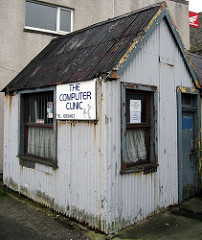
We organise regular content clinics across Defra group publishers.
Statutory guidance
"What are the restrictions on publishing content as statutory guidance?"
The style guide says use them for guidance that relevant users are legally obliged to follow. Don’t use for non-statutory guidance, use the guidance publication type.
It's unclear from the style guide what the difference is between statutory guidance and other guidance types, such as detailed guides which explain what the user must do to complete a task legally.
The nuance is in the user. For example, Metal decontamination installations: process guidance note is for local authority regulators. Another nuance is in who's setting out the guidance. Typically, statutory guidance is what the Secretary of State decides users (usually local authorities) must do under an act of Parliament.
This is an interesting read from a laywer's perspective of the difference between statutory and non-statutory guidance.
Forms
“What we should advise SMEs about forms? What are the rules on creating them? And who can? My example: customers call the Environment Agency because they need to register to be able to submit water abstraction returns online. Our customer centre then email the customer with questions to answer before giving them access to the service. The SME would like to create a form for this.”
Anything which needs a form should really be considered as part of an end-to-end service, even if we can’t currently build the service online.
We only have forms as part of flat services (the user can't complete the task online - we can only tell them to fill in a form and where to send it). Any editor can create a form, which is a publication content type.
One of the major problems with forms is the guidance around completing them. Because the Environment Agency has a call centre, you'll know what problems users face with the application process, so you can use this feedback to improve (or create) the form.
You'll need to consider how to publish the form - we have a lot of forms with several thousand words of guidance in the forms. These are very difficult to navigate. I'd recommend either using the detail text on the form publication page to explain how to complete the form, or in more complex cases creating a detailed guide explaining how users can complete this task (applying for something, which ends with completing a form, which the guide will link to).
You should also consider the format - should the form be ODF or PDF? Ideally, you'd test this with users.
Withdrawing content
“Do we have group wide policy on withdrawing content that will never need to be reviewed? Such as closed consultations or announcements? Do we leave it or withdraw after a certain time? We were looking at whether to withdraw press releases after a year, but the question is more about whether there is a Defra wide policy on withdrawing this kind of content.”
We'd start with the GDS approach on withdrawing content. We did have a "how to" note that at one point was fairly widely circulated across the Defra group.
We need to take different approaches for different content types - so a publication might be “withdrawn” whereas we’d normally un-publish (and redirect) a guide or form. We know that more widely GDS are worried about the amount of "live" content - so there may be, in time, a more active approach to withdrawing older content. We’d be cautious about putting in place a blanket policy of, for example, withdrawing old press releases, in advance of that.
Action: David Pearson (corporate publishing manager) will update Defra’s withdrawing guidance and share it with content teams.
Expiry dates
“It would be good if GDS could design an expiry date for known short term items, for example notices - we publish hundreds of them and they only need to be live for 28 days.”
It was considered as part of the single publisher tool but isn’t currently part of the design. It obviously has a clear benefit for short-term items (and other formats).
Action: Mark Wyatt, Head of Content: “I'll pick this up with GDS again from the Defra group perspective.”
Creative Commons The Computer Clinic by duncan c is licensed under CC BY 2.0
Recent Comments